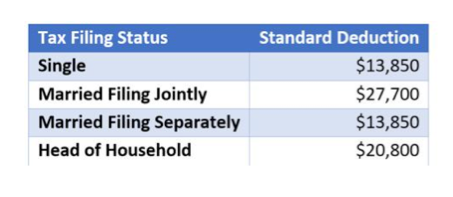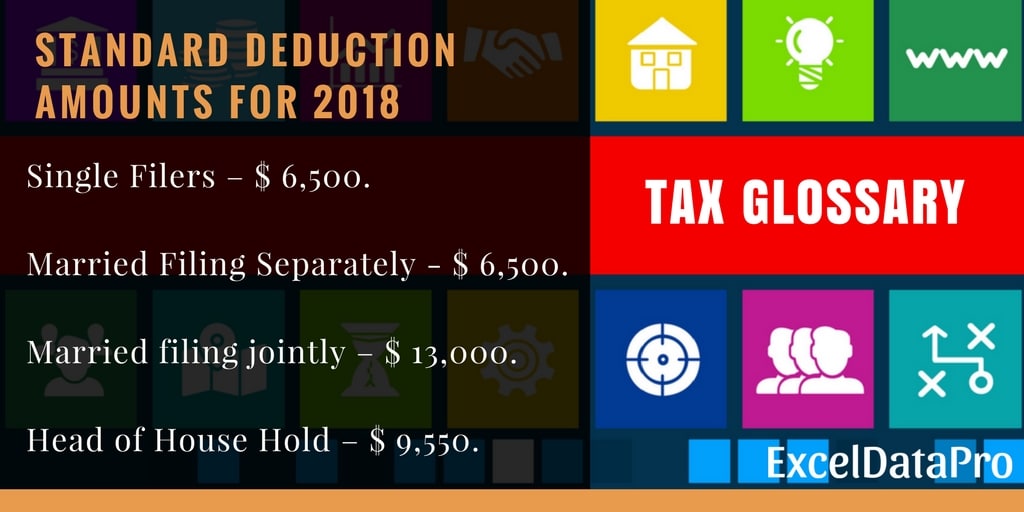A comparison of itemized deductions vs. the FEIE Standard Deduction for expats
Wiki Article
The Foreign Earned Earnings Exemption Explained: An Overview to Enhancing Your Typical Reduction
The Foreign Earned Earnings Exclusion (FEIE) is an important tax obligation provision for U.S. citizens and resident aliens living abroad. It enables qualified expatriates to omit a substantial part of their foreign-earned earnings from federal tax obligations. Understanding the nuances of FEIE can lead to significant tax savings. Numerous individuals neglect vital details that can influence their qualification and advantages. Exploring these facets may expose chances for improved tax end results.Understanding the Foreign Earned Earnings Exemption
Many migrants look for opportunities abroad, recognizing the Foreign Earned Income Exclusion (FEIE) is important for handling their tax obligation obligations. This provision enables U.S. citizens and resident aliens living overseas to exclude a particular quantity of their made revenue from government tax. The FEIE was developed to minimize the tax worry on individuals that stay outside the United States, recognizing the unique financial obstacles they may deal with.
Qualification Requirements for FEIE

Just how to Declare the FEIE
To successfully claim the Foreign Earned Earnings Exemption (FEIE), taxpayers need to initially verify their eligibility based upon certain standards - FEIE Standard Deduction. The procedure includes a number of steps, including filing the proper forms and offering essential documents. Recognizing these demands and treatments is important for taking full advantage of tax benefits while living abroadQualification Needs
Qualification for the Foreign Earned Revenue Exemption (FEIE) rests on meeting particular criteria established by the internal revenue service. To certify, individuals should be united state people or resident aliens that make revenue while functioning abroad. They need to develop a foreign tax obligation home, which suggests their main workplace is outside the USA. Furthermore, applicants need to fulfill either the Bona Fide House Test or the Physical Presence Test. The Bona Fide House Examination calls for that a taxpayer resides in a foreign country for a whole tax year, while the Physical Presence Test necessitates investing at the very least 330 full days in a foreign nation during a 12-month period. Satisfying these demands is essential for declaring the FEIE.Declaring Refine Actions
How can one effectively browse the process of claiming the Foreign Earned Income Exemption (FEIE)? First, people must identify their eligibility based upon the physical existence test or the bona fide home test. When verified, they must complete IRS Type 2555, which information foreign revenue and residency. This kind needs to be connected to their yearly income tax return, usually Type 1040. It is important to properly report all international gained income and assurance conformity with the IRS guidelines. Furthermore, taxpayers need to maintain appropriate documents, such as foreign tax returns and proof of residency. By following these actions, people can More about the author efficiently assert the FEIE and potentially decrease their gross income considerably, boosting their total monetary placement.Calculating Your Foreign Earned Earnings Exemption
While several expatriates seek to maximize their financial benefits abroad, recognizing the calculation of the Foreign Earned Income Exclusion is important for precise tax reporting. The Foreign Earned Income Exemption permits certifying people to exclude a specific amount of their international revenues from U.S. tax, which is adjusted yearly for rising cost of living. To compute this exclusion, expatriates should establish their total foreign earned revenue, which typically includes earnings, salaries, and expert charges gained while residing in a foreign country.Next, they must complete IRS Form 2555, supplying information about their international residency and job standing. FEIE Standard Deduction. It is necessary to satisfy either the authentic home test or the physical existence examination to get approved for the exemption. As soon as these elements are developed, the optimum permitted exclusion amount is applied, minimizing the person's gross income significantly. Accurate computations can lead to considerable tax obligation cost savings for migrants living and functioning abroad
The Impact of FEIE on Various Other Tax Obligation Benefits
The Foreign Earned Income Exemption (FEIE) can affect a person's qualification for specific tax obligation advantages, including the standard reduction. By excluding international gained revenue, taxpayers may discover their modified gross earnings affected, which subsequently can affect their credentials for numerous tax obligation credit reports. Comprehending these interactions is essential for enhancing tax outcomes while living abroad.Communication With Requirement Deduction
When individuals get the Foreign Earned Income Exclusion imp source (FEIE), their qualification for the basic reduction might be affected, possibly changing their overall tax responsibility. The FEIE enables taxpayers to exclude a certain amount of made earnings from united state taxation, which can lead to a decreased gross income. Therefore, if the omitted revenue surpasses the standard reduction, it can reduce the advantage of declaring that reduction. Furthermore, taxpayers who utilize the FEIE may locate that their capability to itemize reductions is also influenced, as certain costs might be impacted by the exemption. Understanding this interaction is crucial for expatriates to optimize their tax benefits while making sure compliance with U.S. tax obligation regulationsQualification for Tax Obligation Debts
Steering through the intricacies of tax obligation debts can be testing for expatriates, especially given that the Foreign Earned Income Exclusion (FEIE) can greatly affect eligibility for these benefits. The FEIE permits qualified people to leave out a substantial portion of their foreign revenues from united state tax, but this exclusion can likewise influence accessibility to various tax credit scores. For example, taxpayers that use the FEIE may discover themselves ineligible for credit scores like the Earned Income Tax Credit Rating (EITC), as these credits typically call for gross income. Furthermore, the exclusion may limit the capacity to assert certain deductions or credit scores connected with dependents. Understanding the interplay between the FEIE and readily available tax obligation credit histories is important for expatriates intending to maximize their tax obligation scenario.
Common Blunders to Stay Clear Of When Claiming FEIE
Generally, expatriates experience a number of risks while claiming the Foreign Earned Earnings Exclusion (FEIE), which can lead to pricey mistakes or missed possibilities. One frequent mistake is failing to satisfy the physical existence or bona fide residence examination, which is crucial for eligibility. Additionally, migrants frequently overlook the requirement to file Type 2555 properly, leading to incorrect or insufficient submissions.One more typical error involves inaccurately determining foreign made income, as several do not account for all relevant income sources. Some expatriates wrongly presume they can leave out all their earnings, not aware of the limitations on the exclusion amount. Furthermore, overlooking to keep proper documentation, such as travel days and residency standing, can threaten a claim. Misunderstanding the ramifications of the FEIE on other tax obligation debts may lead to unintended tax obligation obligations. Recognition of these mistakes can promote a smoother declaring procedure and make the most of potential advantages.
Resources for Expats Navigating U.S. Taxes
Navigating U.S. tax obligation responsibilities can be challenging for migrants, particularly after experiencing pitfalls in asserting the Foreign Earned Income Exemption (FEIE) To aid browse these complexities, a variety of sources are readily available. The internal revenue service website supplies substantial info on tax obligation guidelines, frequently asked questions, and kinds particularly tailored for migrants. Additionally, companies like the American Citizens Abroad (ACA) and the Deportee Tax obligation Professionals deal support and assistance to assure conformity with tax legislations.On the internet discussion forums and neighborhoods, such as the Expat Online forum, enable expatriates to share experiences and understandings, fostering an encouraging atmosphere for those facing comparable obstacles. In addition, tax preparation software program, like copyright and H&R Block, typically includes functions developed for expats, making the filing procedure much more straightforward. Involving with these sources can encourage expatriates to much better understand their tax obligation obligations and maximize benefits like the FEIE.
Regularly Asked Questions
Can I Declare FEIE if I'M Freelance Abroad?
see this site Yes, freelance individuals abroad can declare the Foreign Earned Earnings Exemption (FEIE) To certify, they have to meet details needs regarding residency and revenue, guaranteeing they abide by IRS guidelines for migrants.
Is the FEIE Applicable to Foreign Pensions?
The Foreign Earned Earnings Exemption (FEIE) is not suitable to foreign pension plans. Pension plans are considered unearned revenue and do not receive the exclusion, which especially uses to gained income from work or self-employment abroad.What Takes place if I Return to the U.S. Mid-Year?
If a private go back to the united state mid-year, they might need to adjust their tax obligation situation. Their qualification for particular reductions and exclusions, including the Foreign Earned Income Exclusion, might be impacted by their residency status.Can FEIE Be Claimed With Other Deductions?
Yes, the Foreign Earned Income Exemption (FEIE) can be claimed alongside other reductions. Care should be taken to guarantee correct conformity with tax policies, as particular constraints might apply based on individual scenarios.Just How Does FEIE Affect State Tax Obligation Responsibilities?
The Foreign Earned Earnings Exemption can minimize a taxpayer's federal revenue tax obligation, but it does not immediately impact state tax commitments, which differ by state and might still call for coverage of foreign revenue.Lots of expatriates look for opportunities abroad, understanding the Foreign Earned Revenue Exemption (FEIE) is vital for handling their tax obligations. By leaving out foreign made revenue, taxpayers might find their modified gross revenue affected, which in turn can influence their credentials for different tax credit scores. Guiding via the complexities of tax debts can be testing for expatriates, particularly considering that the Foreign Earned Income Exclusion (FEIE) can greatly influence qualification for these benefits. Taxpayers who utilize the FEIE may find themselves ineligible for credit scores like the Earned Revenue Tax Obligation Credit (EITC), as these credits usually call for taxable earnings. Steering United state tax obligations can be challenging for expatriates, particularly after encountering pitfalls in claiming the Foreign Earned Income Exemption (FEIE)
Report this wiki page